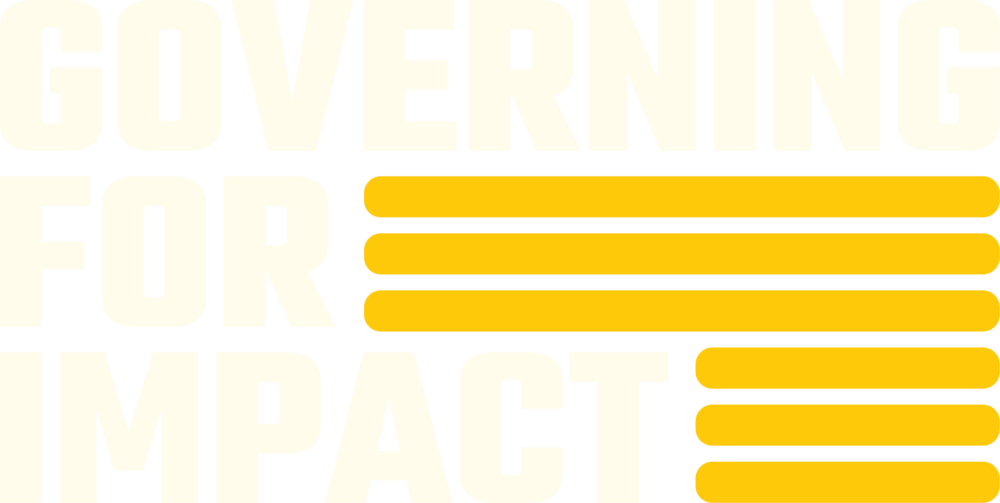With mental health crisis surging across U.S., new letter outlines how President Biden can combat workplace mental health hazards without Congress
Contact: Rachael Klarman, Executive Director, press@governingforimpact.org
WASHINGTON, DC — Today, Governing for Impact (GFI), former OSHA administrator Dr. David Michaels, and 7 organizations released a letter urging the Biden Administration to take executive action to protect workers from mental health hazards in the workplace. The memo calls on the Occupational Safety and Health Administration (OSHA) to issue guidance for employers outlining some types of workplace mental health hazards that could constitute violations of the Occupational Safety and Health Act, such as infrequent rest breaks, long work hours, unsafe work conditions, and many others. It also calls on OSHA to take enforcement actions against current offenders and develop an enforceable workplace standard to protect workers from mental health hazards.
“From truck drivers to warehouse workers, people across the economy are facing increased work-related stress, and it’s fueling America’s mental health epidemic,” said Rachael Klarman, Executive Director at GFI. “The Biden administration can use its existing authority to fight back and protect Americans from abusive workplace practices that pose hazards to worker health.”
The Occupational Safety and Health Act requires employers to “furnish to each of [their] employees employment and a place of employment which are free from recognized hazards that are causing or are likely to cause death or serious physical harm to his employees.” In the letter sent today, Dr. Michaels and GFI outline why mental health hazards can – and do – pose such risks to employees, and are therefore squarely within OSHA’s authority to regulate.
“When Congress passed the Occupational Safety and Health Act, it intended to protect workers from newly-understood hazards, including risks to mental health,” said Reed Shaw, Policy Counsel at GFI. “OSHA has the statutory authority and expertise to protect workers from these hazards – and it should use it.”
The effects of workplace conditions on mental health are being felt by Americans across the country. In 2021, 76% of workers reported experiencing at least one symptom of a mental health condition – a 17% increase in just two years. Black and Latinx workers are disproportionately harmed, as they are both more likely to experience symptoms and more likely to leave a job for mental health reasons than their white peers.
“As a former Administrator of OSHA, I take seriously its mission to protect the health, dignity, and safety of American workers,” said Dr. David Michaels, who served as OSHA Administrator from 2009 to 2017. “I believe that addressing mental health hazards in the workplace is squarely within the agency’s mandate, and I hope to have the opportunity to work with the Biden administration to enact those recommendations.”
The physical and physiological impacts of work stress are well-documented. Long-term stress causes heart disease, high blood pressure, muscle pain, poor sleep, and suicide. Workplace stress also takes an economic toll. Workers facing mental health issues can become less engaged at work, communicate less frequently with coworkers, and struggle with daily functioning – challenges that cost the economy over $47 billion annually in lost productivity.
In the letter directed to OSHA, Dr. Michaels and GFI urged the agency to:
Immediately address mental health hazards by issuing guidance that identifies best practices, encourages employers to mitigate hazards, and outlines how employment practices could constitute violations of the Occupational Safety and Health Act. Issuing guidance would send clear signals to agency employees and, most importantly, the regulated community about their obligations under the law.
Initiate enforcement actions against companies where job conditions or activities pose a threat to mental health that could cause death or serious physical harm, and where there are feasible means to eliminate or materially reduce the hazard.
Develop occupational safety and health standards to protect workers from mental health hazards. Such a standard (or a set of industry-specific standards) would provide more comprehensive support to American workers. An occupational safety and health standard “requires conditions, or the adoption … of … practices, means, methods, operations, or processes, reasonably necessary or appropriate to provide safe or healthful employment.” Thus, OSHA can issue occupational safety and health standards regulating practices that contribute to mental health hazards.
To read the letter to OSHA, please see here.
###
About Governing for Impact
GFI is a regulatory policy organization dedicated to ensuring the federal government works for working Americans, not corporate lobbyists. The policies we design and the legal insights we develop help increase opportunity for those not historically represented in regulatory policy implementation work: working people. For additional information about GFI, please visit https://governingforimpact.org/.
About Dr. Michaels
David Michaels PhD, MPH is an epidemiologist and professor at the George Washington University School of Public Health. He served as Assistant Secretary of Labor for OSHA 2009-2017, and served as Assistant Secretary of Energy for Environment, Safety and Health 1998-2001. He joined the faculty at GW in 2001.
